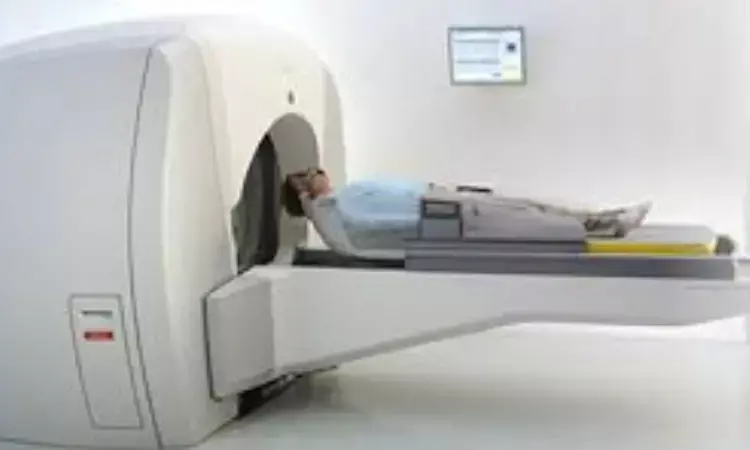- Home
- Medical news & Guidelines
- Anesthesiology
- Cardiology and CTVS
- Critical Care
- Dentistry
- Dermatology
- Diabetes and Endocrinology
- ENT
- Gastroenterology
- Medicine
- Nephrology
- Neurology
- Obstretics-Gynaecology
- Oncology
- Ophthalmology
- Orthopaedics
- Pediatrics-Neonatology
- Psychiatry
- Pulmonology
- Radiology
- Surgery
- Urology
- Laboratory Medicine
- Diet
- Nursing
- Paramedical
- Physiotherapy
- Health news
- Fact Check
- Bone Health Fact Check
- Brain Health Fact Check
- Cancer Related Fact Check
- Child Care Fact Check
- Dental and oral health fact check
- Diabetes and metabolic health fact check
- Diet and Nutrition Fact Check
- Eye and ENT Care Fact Check
- Fitness fact check
- Gut health fact check
- Heart health fact check
- Kidney health fact check
- Medical education fact check
- Men's health fact check
- Respiratory fact check
- Skin and hair care fact check
- Vaccine and Immunization fact check
- Women's health fact check
- AYUSH
- State News
- Andaman and Nicobar Islands
- Andhra Pradesh
- Arunachal Pradesh
- Assam
- Bihar
- Chandigarh
- Chattisgarh
- Dadra and Nagar Haveli
- Daman and Diu
- Delhi
- Goa
- Gujarat
- Haryana
- Himachal Pradesh
- Jammu & Kashmir
- Jharkhand
- Karnataka
- Kerala
- Ladakh
- Lakshadweep
- Madhya Pradesh
- Maharashtra
- Manipur
- Meghalaya
- Mizoram
- Nagaland
- Odisha
- Puducherry
- Punjab
- Rajasthan
- Sikkim
- Tamil Nadu
- Telangana
- Tripura
- Uttar Pradesh
- Uttrakhand
- West Bengal
- Medical Education
- Industry
Gamma knife radiosurgery improves survival in patients with high-grade gliomas: Study

Turkey: Applying gamma knife radiosurgery (GKRS) during the early postoperative period in addition to the standard management of high-grade gliomas (HGGs), is beneficial for increasing overall survival and progression-free survival (PFS), reveals a recent study. The study was published in the Journal of Clinical Neuroscience on January 1, 2022.
Presently, HCGs are managed through surgical resection, external beam radiation therapy (EBRT), and chemotherapy. Although GKRS is being used currently for HGGs management, it has not been considered standard care. Fatih Yakar, Pamukkale University School of Medicine, Department of Neurosurgery, Pamukkale/Denizli, Turkey, and colleagues therefore aimed to compare the contribution of GKRS to clinical outcomes in patients in which gross total resection (GTR) cannot be achieved.
For this purpose, the researchers retrospectively reviewed the data of 99 patients with HGG (World Health Organization (WHO) grade III and IV) from two gropus. Group 1 consisted of 68 patients for which only EBRT was administered and Group 2 comprised of 31 patients for which EBRT and GKRS were administered. They then recorded and compared patient demographic data, IDH mutation, the extent of resection, progression-free survival, radiation dosage, and overall survival, and follow-up time.
The study findings were stated as follows:
- In groups 1 and 2, the grade III/IV tumor ratio was 10/58 and 10/21, respectively.
- In group 2, PFS and OS were higher than in group 1.
- The mean follow–up time was 15.02 ± 11.8 and 18.9 ± 98.6 months in groups 1 and 2, respectively.
"Due to low low morbidity and high efficiency, SRS indications are increasing," wrote the authors. "Applying GKRS to residual tumors during the early post- operative period in HGGs can contribute to a higher OS with less additional morbidity."
"Our findings imply that GKRS can be added to the current management practices for residual HGGs," they concluded.
Reference:
The study titled, "The effectiveness of gamma knife radiosurgery for the management of residual high-grade gliomas: A single institutional study," was published in the Journal of Clinical Neuroscience.
Dr Kamal Kant Kohli-MBBS, DTCD- a chest specialist with more than 30 years of practice and a flair for writing clinical articles, Dr Kamal Kant Kohli joined Medical Dialogues as a Chief Editor of Medical News. Besides writing articles, as an editor, he proofreads and verifies all the medical content published on Medical Dialogues including those coming from journals, studies,medical conferences,guidelines etc. Email: drkohli@medicaldialogues.in. Contact no. 011-43720751


